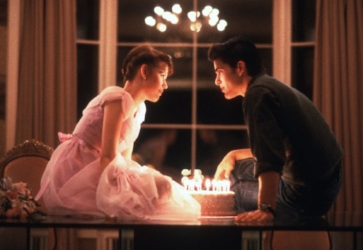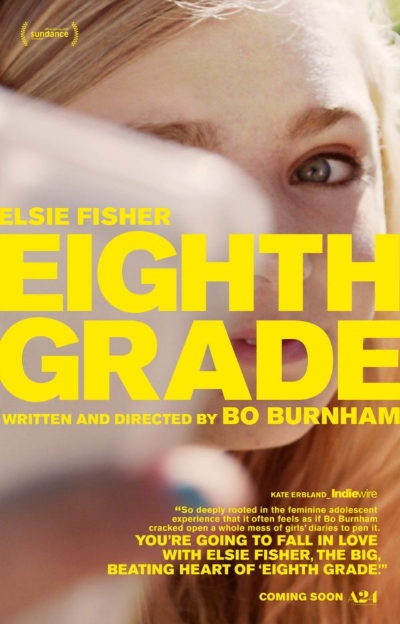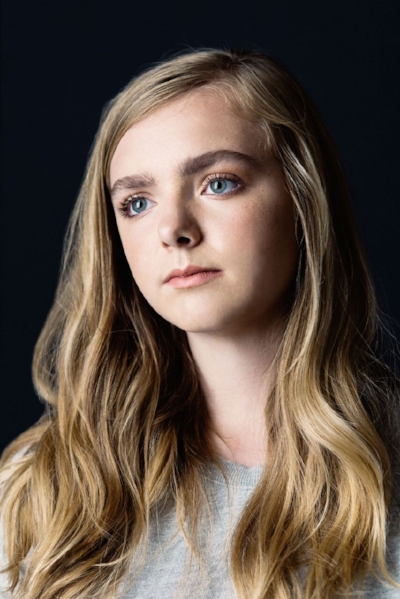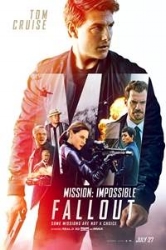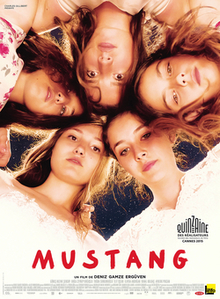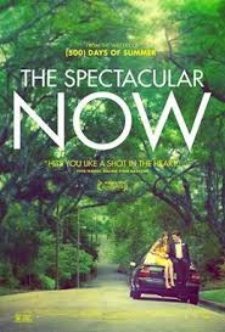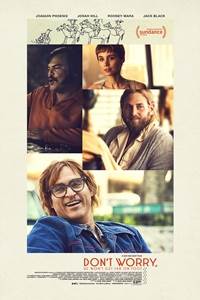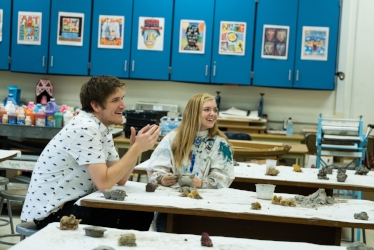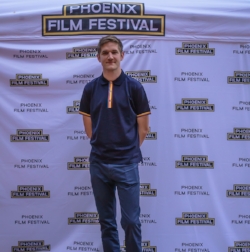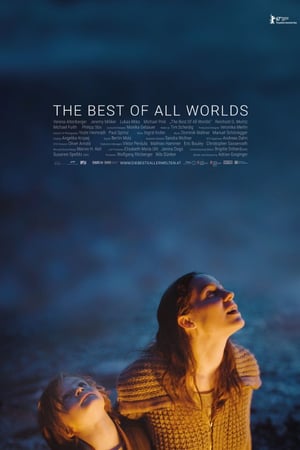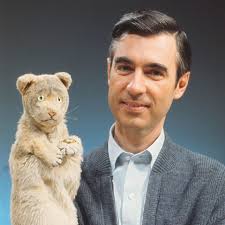Macdonald shines and warmly fits in ‘Puzzle’
Directed by: Marc Turtletaub
Written by: Polly Mann and Oren Moverman, based on Natalia Smirnoff’s original screenplay
Starring: Kelly Macdonald, Irrfan Khan and David Denman
“Puzzle” – “Every day is sort of a jigsaw puzzle. You have to make sure that you’re putting the most important things first.” – Julia Hartz, Eventbrite CEO
“I might be good at this.” – Agnes (Kelly Macdonald)
Louie (David Denman) is content. He enjoys fixing cars at his auto repair shop in a small town located about a half hour from New York City. He married Agnes, they have two boys (their youngest Gabe (Austin Abrams) is ready to graduate high school) and they own a beautiful getaway cabin on a scenic lake. He has it all. His life fits.
Based on her experiences, expectations and available choices, Agnes’ life fits as well. A homemaker, Agnes is sweet, introverted, always puts her family first, and carries out her responsibilities – like shopping, making dinner and keeping a nice home – to perfection, although not obsessively so.
In fact, her oldest says, “You do a million things, and you are good at all of them.”
Modesty is another of Agnes’ virtues.
On her birthday, she received a 1,000-piece jigsaw puzzle, completed it within a morning and unknowingly begins a new passion and tangential journey.
Director Mark Turtletaub and writers Polly Mann and Oren Moverman – who adapted this story from director/writer Natalia Smirnoff’s Argentinian picture “The Puzzle” (2009) – starts the audience’s journey by squarely presenting Agnes’ space in plain view within the movie’s first few minutes. Turtletaub dims the lighting within Louie and Agnes’ house. Not only during her evening birthday party, but no matter what time of day - other than the first sight of morning in the master bedroom – their place feels slightly dusky.
During the film’s first hour, Agnes, however, discovers her own light through a new and encouraging friend Robert (Irrfan Khan), who has a similar affinity for solving jigsaw puzzles. Khan plays Robert as a bit of a lost soul, but a confident one within his own abilities, and Agnes learns self-assurance through him. They spend their time conversationally, due to the nature of their shared interest, but their talks are not casual in nature. Since Agnes is a woman of few words and rarely expresses her own needs and wishes, their moments of discourse don’t demand our attention, but organically draw us in, as we hang on every movement and sound.
Macdonald shines as the lead, and her movements and spoken words feel authentic and true. Macdonald has been a recognizable, successful actress for two decades now, beginning with her celebrated debut as the object of Mark Renton’s (Ewan McGregor) affections in “Trainspotting” (1996). She always seems to bestow rich supporting performances and sometimes transforms or camouflages within her work. Her turn as Llewelyn’s (Josh Brolin) inquisitive wife Carla Jean in “No Country for Old Men” (2007) is a prime example. Agnes and Carla Jean are quite similar. Both wives truly hold gifts that go unutilized and unnoticed, and they are married to men who earn all (or nearly all) the household’s income and make every significant life-decision.
Here, Agnes gradually begins to notice her potential through Macdonald’s gentle energy and nuanced feelings that peek through small looks, glances and thoughts. Macdonald delivers the warmest, most welcoming performance of the year (so far), and naturally, her completed puzzles reflect Agnes’ cordiality. Even though this housewife’s current existence appears ordinary, the images in her puzzles are moving, classical artworks or contemporary images splashed with vibrant colors. That’s no coincidence.
Oh, but cinematically, is constructing multiple puzzles a palatable viewing exercise for moviegoers? Yes, because Agnes is connecting to much more than a hobby or passion, and she just might launch her desire to put the most important things first.
(3.5/4 stars)
Jeff – a member of the Phoenix Critics Circle – has penned film reviews since 2008 and graduated from ASU’s Walter Cronkite School of Journalism. Follow Jeff and the Phoenix Film Festival on Twitter @MitchFilmCritic and @PhoenixFilmFest, respectively.



